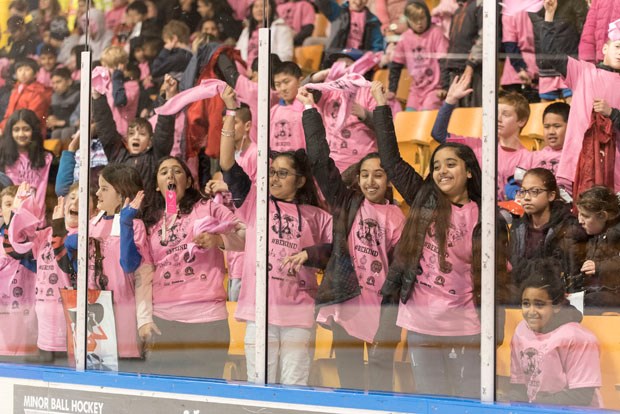I always get a little sad at this time of year. It’s mainly because my birthday is in the first part of March, and the number always seems to climb. But it’s also because minor hockey and soccer programs are coming to an end.
I’ve been coaching hockey goalies for about eight years, even after my own kids ended their playing days. I always liked being on the ice and played in goal as a kid. Once I got the coaching bug, I couldn’t give it up. There’s something special about helping a young athlete learn something new and make improvements in their game. The look on their face when they’ve learned a new skill is what keeps me coming back, year after year, despite the pain in my knees and elbows.
As a coach, we are required to take an online program called Respect In Sport (RIS). You watch some videos and answer a few questions at the end. It’s all about treating young athletes with respect. It seems pretty obvious that kids need support and encouragement. For the most part, this is what I see with the teams I work with. For the most part.
Sometimes kids feel that coaches are being mean to them. It’s a hard job for a coach to try and get the best from a player, especially in a rep situation, without being perceived by the child, and maybe the parents, as being a bit tough. It’s a delicate balance. It’s also hard because kids are starting to learn real life lessons, like disappointment in not playing because they need to improve, or losing a game, a tournament or a playoff series. It’s hard, it’s heartbreaking, but it’s part of life.
A coach is supposed to help kids understand these life lessons. That’s their real job, they just do it through sports. But the line has to be drawn when it’s not just about the game, when things go too far in the locker room or worse, outside the rink or the pitch.
I’ve heard about kids being bullied, and nothing is done. I’ve heard about kids, and even parents, raising issues, and nothing gets done. There’s a terrible example about a 13-year-old boy in Abbotsford who quit hockey because he was being bullied and wrote a public resignation. The coaches were aware of the problem, as was the league, and didn’t do anything. The CBC just did a week-long series on the same topic about kids in sports.
People don’t like to speak up because they are afraid they will be seen differently, that it might hurt their chances of being on a rep team the next year, that other people will avoid them. If their concerns are made public, they are sometimes punished even more for “rocking the boat.”
Coaches are great people. They volunteer, they do their best and, sadly, they might not realize the impact their actions, or inactions, have on a child. Without recognizing it, being open to hear about it, without seeking feedback, it can have a detrimental, long-term effect.
Wednesday was Pink Shirt Day, the day we stand up to bullying and say it has to stop. Wearing a pink shirt one day of the year won’t do it alone.
Brad Sherwin, MBA is a long-time resident of South Delta, and has almost 30 years’ experience in marketing, public relations and business strategy. He teaches marketing at Douglas College, coaches hockey goalies and is president of the board of directors at Deltassist. You can reach him at [email protected].



